ONLINE COURSE
Learn SaaS Metrics & Financial Modeling for Software Investors
- Step-by-step video tutorials
- Templates & examples
- Self-paced course
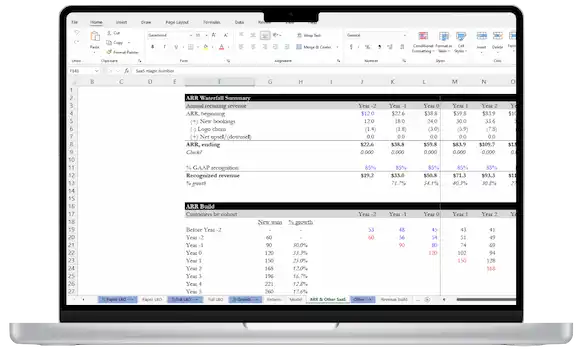
INTRODUCING
The First Course Designed For Software Investors in Private Equity, Growth Equity, and Venture Capital
Gain the knowledge you need on SaaS metrics and financial modeling to stand out in the competitive recruiting process, or to excel on the job.
Target Firms/Roles
Software PE
Silver Lake
Vista Equity
Thoma Bravo
Tech Buyout
Hellman & Friedman
Warburg Pincus
Francisco Partners
Growth Equity
General Atlantic
TA Associates
Insight Partners
Venture Capital
Index Ventures
Sequoia Capital
a16z
Software IB
Goldman TMT
Morgan Stanley Tech
Qatalyst
CURRICULUM
Get An Edge By Mastering SaaS Metrics & Financial Modeling
The course is comprised of easy-to-follow video tutorials. Each section includes supplemental templates, spreadsheets, and PDFs for download.
- 52 course lessons
- 7+ video hours
- Excel templates & walkthroughs
SaaS contracts are the “atomic unit” of any SaaS business. Therefore, it’s critical we understand them to build a strong foundation to analyze the business model.
In this lesson, we cover these fundamental concepts:
- What does a typical SaaS contract look like
- How does understanding a SaaS contract allow us to build a better financial model
- Define key financial terms and definitions of SaaS contracts, including ARR, ACV, TCV, and many others
- Difference between ARR and GAAP revenue
- Difference between ARR and Contracted ARR (CARR)
- Difference between billings and bookings and revenue
After laying a strong foundation around SaaS contracts, we move to how to analyze MULTIPLE contracts at the same time: the ARR Waterfall. This is the fundamental building block of SaaS metrics and financial modeling.
In this module, we cover:
- How to build an ARR Waterfall in the format that top private equity investors use
- How to build an ARR Waterfall from raw customer-level contracts
- How to draw to insights on retention and growth from ARR Waterfalls
- Learn how ARR waterfalls flow into financial models
- The top mistakes to avoid when preparing an ARR Waterfall
Top investors can learn an incredible amount about the health of a SaaS business without even building a financial projection model. One of the things that let’s them do this is SaaS metrics.
I cover all the metrics that top investors look at to assess the health of a SaaS business, as well as:
- A metrics framework for what makes a “good SaaS business”
- When and how to use these metrics as an investor
- How to calculate the top SaaS financial metrics for investors
- Define ranges for “Good/Bad/OK” for each metric
Forecasting revenue is one of the most important jobs for software investors across private equity, growth equity, and venture capital. In this lesson, I cover frameworks, mental models, and templates used by top investors:
- Top down revenue modeling
- Bottom’s up revenue modeling
- ARR waterfall projection
- “Sales capacity” methodology
Modeling expenses of a SaaS business can pose several challenges. In this lesson, we discuss how to overcome them, as well as the modeling approach used by top software investors:
- Detailed overview of key SaaS expenses line-items: COGS, R&D, G&A, S&M
- What’s included in each line-item, and benchmarks for much each line-item should be for “good” companies
- How to build a financial model projection for each expense, including detailed headcount projection
- Understand typical margin structure, at various stages for a SaaS business
- Learn what margin levels “should be” at various milestones for the company
One of the best ways that top investors use to analyze a SaaS business is cohort analysis. This module covers the detailed step-by-step process to build cohorts and analyze several metrics.
In the lesson, we cover:
- The motivation behind cohort analysis; when it does and does not add to an investor’s understanding of the business
- How to build “based” cohorts across several key metrics, including Realized LTV, Realized LTV/CAC, and others
- Understanding how to perform retention analysis both at the cohort level and at the overall company reporting level
The accounting treatment of software businesses differs significantly from “normal” companies that sell widgets. That’s why we cover the following critical concepts:
- How does GAAP revenue differ from ARR
- How software revenue flows through 3-financial statements
- Billings vs. bookings vs. deferred revenue
- Other software-specific accounting: internal use software, sales bonus compensation, stock-based compensation, and others
For students who cover topics reserved for advanced modeling (i.e. those used in late stages of due diligence), we have an entire module dedicated to these topics:
- Stock-based compensation & dilution
- Capitalized software costs
- Deferred compensation
- Cash billings waterfalls
PAST STUDENTS
Trusted By Students From Top Firms & Schools
Existing Investors
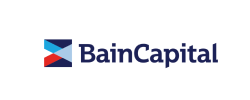


Investment Bankers



MBAs & Undergrads
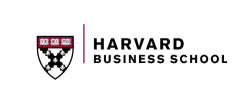
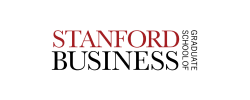

Consultants
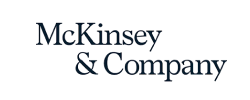
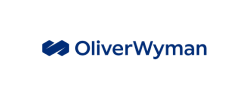

IMPROVE YOUR RESUME
Earn Verified LinkedIn Credentials While You Learn
Looking to boost your resume and demonstrate your skills? At the end of each module, you’ll take a quiz to assess your knowledge. By receiving a passing score, you will earn a LinkedIn Verified Certificate. Certificate does not expire.
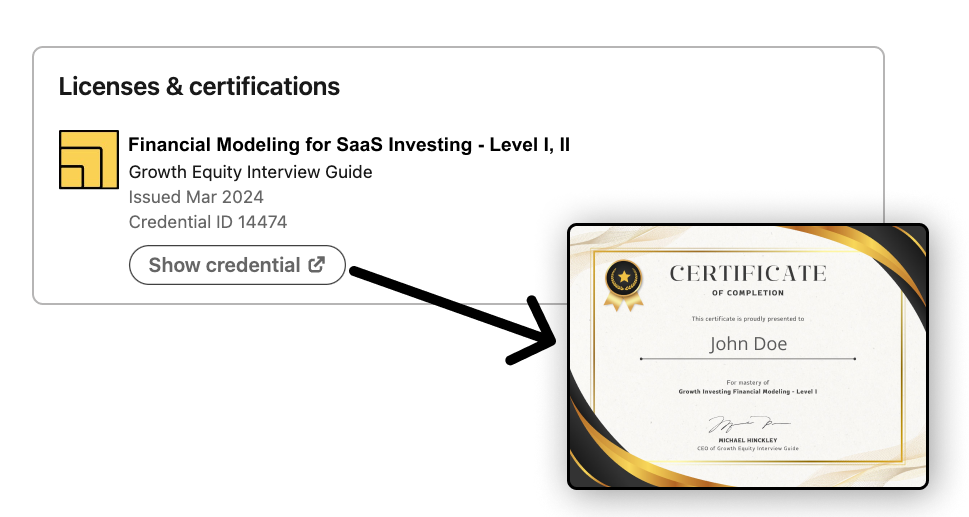

About THE INSTRUCTOR
Mike Hinckley Is a Financial Modeling Expert, Based in San Francisco
10+ years of finance & growth stage experience

General Atlantic
Investor at leading growth firm with $86b in assets

Airbnb
Operator at General Atlantic's portfolio company

Wharton MBA
Graduate of top business school

100% Money Back Guarantee
If you aren’t satisfied, for any reason, just send me an email at himike@growthequityinterviewguide.com within 14 days of your purchase and you’ll get a full refund.
Frequently Asked Questions
If you have any questions not answered below, feel free to email me at himike@growthequityinterviewguide.com, and I’ll answer as soon as I can!
The course is for anyone who is interested in or applying for software or SaaS investing roles at top private equity, growth equity, or venture capital firms.
The skills you'll learn will prepare you to excel in interviews or on-the-job in junior to mid-level roles. Specifically:
- Undergrad analyst or internship
- Pre-MBA associate (on-cycle or off-cycle)
- Post-MBA associate or VP
This course will teach you the skills you need to excel in interviews or on-the-job in junior to mid-level roles at top private equity, growth equity, or venture capital firms.
If you have no experience with Excel spreadsheets and financial modeling basics (e.g. 3-statement models), I'd recommend that you learn those instead of this course.
In a sense, this course is extremely advanced in that it teaches the exact skills and modeling techniques used at the best software investing firms in the world from private equity to venture capital (e.g. General Atlantic, Silver Lake, a16z, etc.).
That said, there are only a few pre-requisites. You must understand basic financial modeling and possess Excel spreadsheet skills.
The course is designed to equip you all the skills you'll need to excel in interviews or on-the-job in junior to mid-level roles. Specifically:
- Undergrad analyst or internship
- Pre-MBA associate (on-cycle or off-cycle)
- Post-MBA associate or VP
The course is designed to be flexible. One could complete it over a weekend, if a student focused and worked diligently. Many students do, especially those who in interviews.
However, the subject matter and lessons are "meaty" enough, such that if one has more time (weeks or months), one could take their time and go even deeper. There are several practice exercises which can serve as a roadmap for one's education over a longer time period.
For reference, the course itself includes just over 7 hours of video content, with several accompanying written text lessons. This doesn't include the time you take to do the practice case studies (which I recommend!).
I offer a 100% money back guarantee. If you don't like it, email me at himike@growthequityinterviewguide.com for any reason within 14 days, and I'll refund you.
You'll get immediate access to the course right after you purchase!
You get lifetime access!
That way, you have peace-of-mind to purchase now and utilize the course materials to prepare for interviews over multiple recruiting cycles!
Even if you've had significant software investment banking experience, there are a few ways you may still benefit from this course:
- Learn advanced modeling techniques practiced by top software investors. Most investment bankers are surprised by the level of detail and diligence that top private equity and other buyside investors put into their financial modeling. In this course, you'll master advanced and detailed concepts (see syllabus above) that are not often used in investment banking or basic SaaS financial models.
- Strengthen your understanding of foundational concepts - while you may have encountered many of these concepts, you might have skipped over essentials and not understand WHY things are done the way they are done. This course will equip you slow down and solidify your understanding.
- Investment banking work can differ widely from interview prep - The course is designed to not only help one get ready to excel on the job in software investing, but also we cover how to approach specific modeling tasks in an interview or case study situation.
My flagship Growth Equity course gives a brief intro to some SaaS metrics & financial modeling concepts, but this course covers many more topics and goes into MUCH more depth.
In this course, I go into the details of how professional software investors use metrics and financial models to analyze software companies, whereas in the growth equity course I spend most of the time explaining financial modeling concepts that are common to all growth investing, regardless of industry.
Email me at himike@growthequityinterviewguide.com and I'll get back to you ASAP

